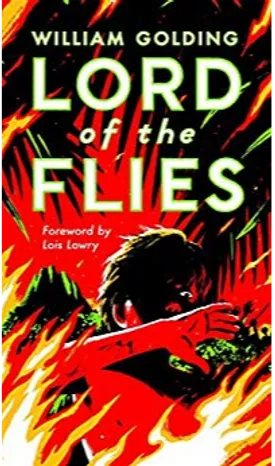William Golding
William Golding is an infamous English novelist and educator who won the Nobel Prize in Literature in 1983. He is best known for his novel Lord of the Flies, but had written many other critically acclaimed works.
Born in Cornwall, England, in 1911, William Golding is an author whose works often address themes of social and political power, philosophical questions, and man’s relationship with nature. Most of Golding's novels have notable psychological themes, and often contain elements of allegory. He was educated at Marlborough and Brasenose College, Oxford, where he enrolled in the sciences but quickly shifted to English and philosophy. He began to write and even researched Arthurian legends before being called to serve in World War II in 1941. His experiences as a navigator in the British navy had a considerable impact on his writing.
Before writing Lord of the Flies in 1954, Golding had already published several books. In 1942, he debuted with the novel Lord of the Flies, a fantasy story about a group of schoolboys stranded in an isolated island and their descent into savagery..
In 1954, the award winning novel, Lord of the Flies, was published and quickly became a classic of modern literature. The story follows a group of schoolboys stranded on an island who must survive. Throughout their journey, the boys are faced with many of the same issues adults must face and struggle to find maturity amongst their self-destructive behavior. Through this novel, Golding questions the power structures that exist in human societies, as well as the human capacity for evil and destruction.
In addition to Lord of the Flies, Golding wrote many other novels. Pincher Martin (1956) follows a man's struggle for survival on an isolated island. The Inheritors (1955) tells the story of the extinction of a race of people due to the cruelty of a more advanced race. The Spire (1964) is a story of a cathedral's construction, and the struggle of its builder to complete the project. Last of the Just (1959) features a Jew who is murdered in every generation and returns to life as another person, while others in his family line all die.
In addition to novels, Golding also wrote many essays, two plays and many short stories. The Scorpion God (1971) is a collection of three short stories. His plays included The Brass Butterfly (1958) and The Brass Butterfly (1964).
Golding was awarded the Nobel Prize for Literature for his "reality of modern experience illuminated by the illumination of the human spirit". His phenomenal writing in Lord of the Flies led him to become the only British author to win the Nobel Prize for literature post-war. He also received the Booker Prize in 1983 for his novel Rites of Passage, and a number of other honorable awards for his works.
William Golding died in 1993, leaving a rich legacy of novels, essays and stories that are deeply appreciated even today. His writing opened our eyes to the social themes he explored. He brought attention to the human capacity for evil, power structures and philosophical questions, making him an author whose writings will stay with us for years to come.

